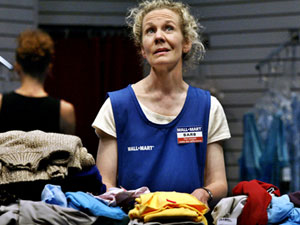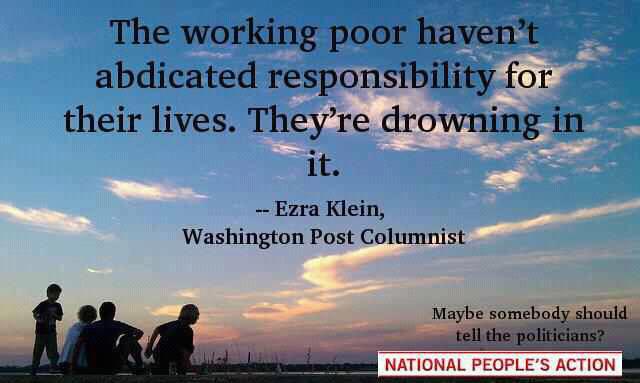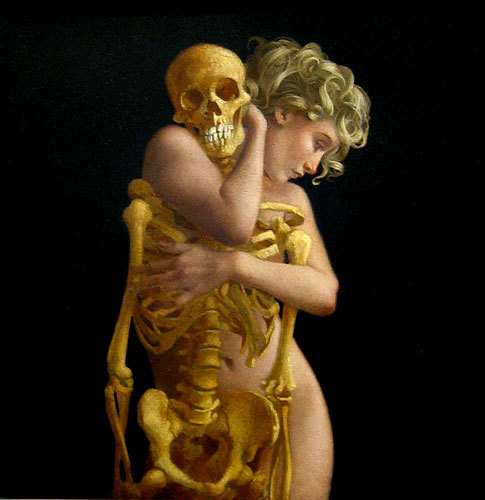The reason severe injustice exists is because everyday
people will not speak out against it. We
cannot allow protesters or talking heads to be the spokespersons for society; to
stand against war, bigotry, racism or classism.
We have to do it ourselves, in our everyday lives, politely but firmly
to those who display their prejudice.
Perhaps we are too shy, or too afraid of confrontation. I understand.
I have those days in which confrontation feels like a chore, instead of
the joy it often is to have groups of people upset at me. There are those rare days that I’d rather go
to bed than write to the person who is wrong on the internet. Or perhaps we just don’t know what to say.
Well, let me give you a hand, at least in the area of
classism. When you hear someone making a
classist statement, there are things you can say that will gently remind them
that poor people are actually human beings.
It’s a public service we should all provide.
Below are some excellent examples of classist quotes, and I’ll
provide a response. When you hear or see
these kinds of statements, perhaps you can just repost one of these responses
and it will make your job of stopping classism easier.
“Try to imagine a … presidential candidate saying in front
of the cameras, ‘One reason that we still have poverty in the United States is
that a lot of poor people are born lazy.’ You cannot imagine it because that
kind of thing cannot be said. And yet this unimaginable statement merely
implies that when we know the complete genetic story, it will turn out that the
population below the poverty line in the United States has a configuration of
the relevant genetic makeup that is significantly different from the
configuration of the population above the poverty line. This is not
unimaginable. It is almost certainly true.” —Charles Murray, “Deeper Into the Brain,” National Review,
2000
As a famous intellectual and scientist, I would like to think that you
know the difference between “almost” and “certainly.” And perhaps the reason
you have never heard a presidential candidate say this statement is because the
candidate certainly does. (Heh. Heh. See what I did there?)
“We have got this tailspin of culture, in our inner cities
in particular, of men not working and just generations of men not even thinking
about working or learning the value and the culture of work, and so there is a
real culture problem here that has to be dealt with,” -Paul Ryan, Bill Bennet’s Morning in America.
I know, Congressman Ryan, that you are a hard working man,
having experience at working two jobs at a time and raising children on your own with inadequate nutrition and little support from your family… oh, you don’t? Perhaps we have pinpointed the real cultural
problem. The one pinpointed by billionaire
Warren Buffett: “There’s class warfare,
all right, but it’s my class, the rich class, that’s making war, and we’re
winning.”
“The typical poor person in the United States has a far
higher living standard than the public imagines. While their lives are not
opulent, they are far from the images of dire poverty conveyed by the press,
liberal activists, and politicians”.– Heritage Foundation Website, http://origin.heritage.org/issues/poverty-and-inequality/inequality
Yeah. Sure. The three and a half million people who are homeless every
year in the United States have a pretty decent standard of living. You
cannot know the life of the poor until you live it. If you would like to rule with justice, you
should live in an mental hospital or a nursing home for six months to
understand what citizens at the bottom live with.
Poverty is caused by laziness.- 27 percent of all Americans.
“Blessed are you who are poor, for yours is the kingdom of
heaven.
Woe to you who are rich, for you have already received your comfort.” -Jesus
Woe to you who are rich, for you have already received your comfort.” -Jesus
“I don’t know why you think helping someone, people who were
born and dying on food stamps. I don’t know why you think that’s admirable. And
yes… a lot of people are lazy and a lot of people are becoming lazier and we’re
not doing people a favor, by the way. “
-Charles Payne on Sean Hannity’s show 1/7/14
Helping the poor heals one’s soul. Speaking ill of the poor without evidence empties one’s spirit.
Prejudiced statements against the poor, both black and white
are not just a recent phenomenon. Here’s
a quote from 1947. (I had a quote about poor black folks, but I didn’t
put it in because it was too long.):
"Poor whites lacked ambition; they were violent,
sexually promiscuous people who did not respect human life."-Wayne Flynt http://www.demos.org/blog/1/14/14/people-have-always-thought-poor-were-lazy-degenerates
Perhaps we shouldn’t be speaking to a whole class of people
as being immoral. The same lens might be turned on ourselves.
“My humble observation is that most long-term poverty is
caused by self-sabotage by individuals,” he argued. “Drug use. Drunkenness.
Having children without a family structure. Gambling. Poor work habits.
Disastrously unfortunate appearance. Above all, and counted in the preceding
list, psychological problems (very much including basic laziness) cause people
to be unemployed, have poor or no work habits, and enter and stay in poverty.” –Ben
Stein
Mr. Stein, allow me to introduce you to Nobel laureate, Muhammad Yunnus: “Most people distance themselves from the issue by saying
that if the poor worked harder, they wouldn't be poor…The fact that the poor
are alive is clear proof of their ability.” ― Muhammad Yunus, Banker to the Poor: Micro-Lending and the
Battle Against World Poverty
About poor children: “They have no habit of showing up on
Monday and staying all day or the concept of
’I do this and you give me cash,’ unless it’s illegal.” –Newt Gingrich
So poor children don’t go to school? They don’t get grades? And poor children are all criminals? Newt, are you trying to compete with Pat
Robertson in crazy talk?
“You gotta look people in the eye and tell 'em they're
irresponsible and lazy. And who's gonna wanna do that? Because that's what
poverty is, ladies and gentlemen. In this country, you can succeed if you get
educated and work hard. Period. Period.” –Bill O’Reilly
 Bill, listen to me.
You are irresponsible with your words and lazy with your research. Success is luck as much as work. And classism is ugly and immoral. Period. Period.
Bill, listen to me.
You are irresponsible with your words and lazy with your research. Success is luck as much as work. And classism is ugly and immoral. Period. Period.
Classism exists everywhere.
There is a long history of the famous and important talking down the
poor. Let’s not let anyone get away with
it without being challenged. You can speak out in a much more polite manner than I, I'm sure. But let's respond. Let’s drive
classism into the back alleys of the internet, where it belongs.
“The Gospel takes
away our right, forever, to discriminate between the deserving and the
undeserving poor.”
― Dorothy Day























